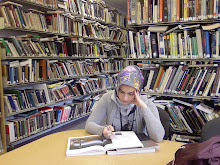.jpg)
Jean Miélot, a European author and scribe at work
A scribe is a person who writes books or documents by hand as a profession and helps the city keep tracks of its records. The profession, previously found in all literate cultures in some form, lost most of its importance and status with the advent of printing. The work could involve copying books, including sacred texts, or secretarial and administrative duties such as taking of dictation and the keeping of business, judicial and historical records for kings, nobility, temples and cities. Later the profession developed into public servants, journalists, accountants, typists, and lawyers.
http://en.wikipedia.org/wiki/Scribe
Scrivener
Telling a problem to a public scrivener. Istanbul, 1878.

A scrivener (or scribe) was traditionally a person who could read and write. This usually indicated secretarial and administrative duties such as dictation and keeping business, judicial, and history records for kings, nobles, temples, and cities. Scriveners later developed into public servants, accountants, lawyers and petition writers, etc.
Scriveners remain a common sight in countries where literacy rates remain low; they read letters for illiterate customers, as well as write letters or fill out forms for a fee. Many now use portable typewriters to prepare letters for their clients.
The word comes from Middle English scriveiner, an alteration of obsolete scrivein, from Anglo-French escrivein, ultimately from Vulgate Latin *scriban-, scriba, alteration of Latin scriba (as scribe).
http://en.wikipedia.org/wiki/Scrivener

No comments:
Post a Comment